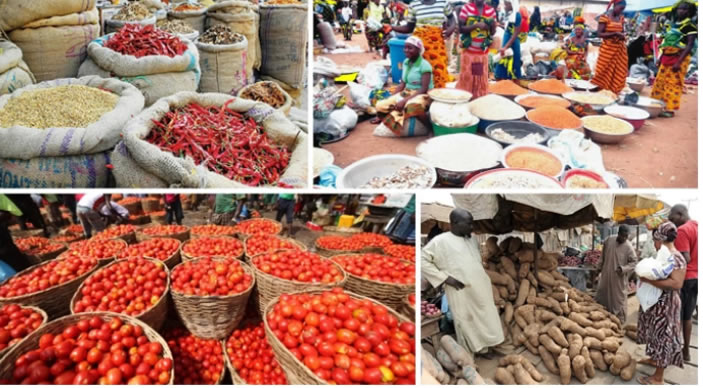The World Bank’s latest Food Security Report which was released on September 26 2024 has ranked Nigeria as the fifth hardest hit country by food inflation globally and the third in Africa, following Malawi and Liberia.
The report highlights that escalating food insecurity is largely due to conflicts in agricultural areas and environmental issues stemming from climate change. It noted a 28 percent rise in the number of food insecure individuals in Nigeria between August 2023 and September 2024.
“On the other hand, 18 countries experienced worsening situations due to factors, including intensified conflict and climate related shocks such as droughts. Notable examples are Nigeria, Ethiopia and Yemen, each witnessing an increase of more than one million people facing high levels of food insecurity from the previous year,” World Bank states.
The report found that an extreme weather condition has significantly increased food insecurity across West Africa, leading several countries in the region to declare a state of emergency. In Nigeria, an estimated 1.6 million hectares of land has been inundated, including 342,650 hectares of cropland, affecting 685,770 vulnerable individuals.
In West and Central Africa, floods and droughts have affected approximately 3.5 million people, who require emergency support. It is estimated that $50 million is needed to help 760,200 communities meet their basic food needs.
On 13 July 2023, President Bola Ahmed Tinubu declared a state of emergency in agriculture, mandating the cultivation of 500,000 hectares of farmland. Fifteen months later, the World Bank has identified Nigeria as one of the nation’s facing the most severe food inflation.
Prices of staple food items such as rice, beans, yam, garri, maize and cooking oil have doubled, pushing more Nigerians into extreme poverty. Months after the emergency declaration, the public remains in the dark about the designated locations for the 500,000 hectares of land, the area cultivated, the types of crops grown, the expenditure incurred, and the project’s overall impact. The price of a bag of rice has surged from N45,000 to approximately N100,000, with some food items experiencing price increases of over 100 percent.
In July this year, the National Bureau of Statistics (NBS) reported in its ‘Selected Food Prices Watch’ that prices for beans, rice, yam, eggs and garri had risen. The bureau indicated that while some food items experienced year-on-year price increases, there was a slight month-on-month decline.
According to the report, the average price of 1kg brown beans (sold loose) stood at N2,444.81. This indicates a rise of 262.98 percent in price on a year-on-year basis from N673.53 recorded in July 2023 and a 6.63 percent rise in price on a month-on-month basis from N2,292.76 in June 2024. Agric eggs medium size (12 pieces) experienced significant price increase year-on-year from N1,006.64 in July of last year (2023) to N1,935.69 in June 2024.
On a month-on-month basis, the average price of this item rose by 12.11 percent from N 1,935.69 in June 2024. There was also a notable price increase of Tomato 1kg by 203.57 percent on a year-on-year basis from N557.96 in July 2023 to N1,693.83 in July 2024. On a month-on-month basis, it decreased by -26.43 percent from N2,302.26 in June 2024.
NBS noted that the average price of 1kg Garri white sold loose went up by 167.98 percent on a year-on-year basis from N429.89 in July 2023 to N1,151.79 in July 2024, while there was an increase of 1.43 percent on a month-on-month basis. The average price of 1kg of Yam tuber increased by 234.23 percent on a year-on-year basis from N539.41 in July 2023 to N1,802.84 in July 2024. On a month-on-month basis, it decreased by -10.82 percent from N2,021.55 in June 2024 to N1,802.84 in July 2024.
The growth of Nigeria’s agricultural sector has been constrained to 0.8 percent in the first half of 2024, down from 1.7 percent in the previous half, primarily due to insecurity and logistical challenges. In contrast, the country has experienced a remarkable increase in capital importation, with Q1 2024 recording $3.38 billion dollars, an increase of 198.06 percent from $1.13 billion dollars in Q1 2023 and a 210.16 percent rise from Q4 2023. While Q2 2024 also showed significant growth, with capital importation reaching $2.60 billion dollars up ,152.81 percent from Q2 2023, this figure represented a decline of 22.85 percent compared to Q1 2024.


